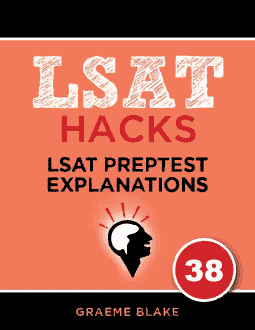QUESTION TEXT: One-year-olds ordinarily prefer the taste of sweet…
QUESTION TYPE: Necessary Assumption
CONCLUSION: A young child’s food preferences can be changed based on what you feed them.
REASONING: If you feed a one year old child salty food for a year then they will develop a taste for salty food.
ANALYSIS: A whole year is a long time in the life of an infant. We might expect their tastes to change naturally. The argument is assuming that a child’s tastes do not switch from sweet to salty naturally over the course of the year.
___________
- CORRECT. If you feed a one year old for a year, they become two years old. The argument is assuming that two year old children do not naturally prefer salty food.
- The argument assumes this doesn’t happen, unless you feed them salty food.
- The argument would actually be much stronger if two years olds do naturally dislike salty food (unless you’ve been feeding it to them for a year.)
- The argument would be stronger if children fed salty food developed a taste for salty food even if it tasted unpleasant.
- The argument doesn’t say what type of food is better for a child. This is irrelevant.


Can you further explain why C is wrong. I understand that our task for necessary assumptions questions is to think of ways to weaken the proposed conclusion and then exclude that possibility in the answer choice.
Yes, that’s one good way of tackling necessary assumption questions. Just keep in mind that sometimes you won’t be able to come up with a weakness, and/or the correct answer choice will somehow address a very subtle weakness in the argument that you didn’t come up with during your prephrase. In that case, you should remember to negate the answer choice, and plug it back into the stimulus as a premise. If the argument falls apart, then you know you’ve found the correct answer.
Let’s negate (B): “Two years olds sometimes naturally dislike salty food so much that they would not choose it over some other foods”.
If we plug that back into the stimulus, the argument actually becomes stronger. Adding this premise would mean that two year olds naturally dislike salty food to some extent, so if the children start to prefer salty food, then the children successfully had their tastes changed by being exposed to other foods.